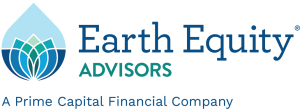Sustainable investing means investing for positive long-term economic, social, and environmental returns as well as for financial gains. It is an approach that can help you meet your financial goals in a way that won’t compromise your values.
Think of sustainable investing as the opposite of a “growth at all costs” mindset. When making investment decisions, a sustainable investor or financial advisor will take more than financial returns into account. They will weigh all of the profits and losses a company is generating, including social and environmental impacts that are not found on a balance sheet. Corporate governance, which refers to the set of rules and policies that govern all of the actions that a company takes, may also be taken into account.
From investing in climate change solutions to divesting from weapons manufacturers and companies with a record of human rights abuses, sustainable investing is forward thinking. It is an approach to wealth management that is suited for anyone who thinks deeply about what kind of world they want their great-great-grandchildren to live in. It is a way of investing that considers the impact their investments will have on their descendants and on the planet.
Investing in a sustainable way means keeping your capital away from companies that are creating social and environmental problems and instead putting it into companies that are doing business in a way that aligns with your values.
The Meaning of Sustainable Investing
Sustainable investing is a comprehensive term that encompasses values-based, ethical, socially responsible (SRI), impact investing, and other approaches. Think of sustainable investing as an investment philosophy or guiding strategy that employs many different tactics including divestment; screening investments (mutual funds, stocks, ETFs, fixed income, or cash instruments) for environmental, social, and governance impacts; investing in B Corps; investing in community banks; and investing in for-profit social ventures.
Though its tactics may vary, sustainable investing on the whole is based upon the conviction that we must take the long view when deciding what companies or funds to invest in. Investing in fossil fuel companies will have one kind of long-term impact, and investing in alternative energy will have another.
Socially responsible investors often share the belief that investment strategies that do not take future generations into account can perpetuate business practices that are harmful to people and planet.
The Rise of Sustainable Investing
Sustainable investing is on the rise and the trend has no end in sight. In 1995, US SIF, a nonprofit organization dedicated to advancing sustainable, responsible, and impact investing across all asset classes, calculated that there were $639 billion of sustainable and responsible assets under management in the United States. In their 2018 Report on US Sustainable, Responsible and Impact Investing Trends, US SIF calculated that total to be $12 trillion.
Sustainable Investing Funds
Sustainable funds and portfolios typically include a collection of investments that have been evaluated for social and environmental impact. Reporting is becoming more widely available for companies of all sizes, from large-cap value to small. Market data analytics firm MSCI has put together their ownSustainable Impact Metrics, a framework based on the UN’s Sustainable Development Goals.
Sustainable funds may screen out companies that sell fossil fuels, weapons, or tobacco while positively screening in companies that are producing alternative energy, organic agricultural products, clean water technologies, or others that are seen as sustainable because they have a track record for:
- environmental responsibility;
- ethical behavior and transparency;
- product safety;
- creating fair, safe, and equitable workplaces and;
- honoring human rights.
To find out a fund’s sustainable and responsible performance, there are a variety of places that investors can look for data. For example, the global financial services firm Morningstar offers a sustainability rating. Barron’s uses Morningstar data to create an annual list of the top sustainable funds.
Sustainable vs Impact Investing
Sustainable investing is an umbrella term that includes impact investing, SRI, and other types of socially and environmentally responsible investing.
Impact investing is used to describe investments that are made in private companies that are solving environmental or social challenges directly through their innovative business models. Investing in companies that produce potential solutions for climate change would be one example of an impact investment. Other types of social enterprises might produce products that provide access to health care, education, or clean water to people in emerging markets.
For more information about impact investing, the Global Impact Investing Network (GIIN) has produced a definitive guide to impact investing. For examples of impact investments, look at ImpactBase, a searchable, global online directory of impact investment funds and products for investors, advisors, and fund managers.
What are Sustainable and Responsible Investing Criteria?
A sustainability-focused investor or financial advisor looks at more than balance sheets when weighing which investments to make. Sustainable and responsible criteria are metrics used to assess how a company is performing in terms of environmental, social and other factors:
- Environmental metrics assess how a company’s practices are impacting the planet. They might measure the company’s impact on air or water quality, how much water they use, how much waste they produce (and how they manage that waste), and how much energy they use and what type of energy.
- Social metrics address how they treat the people that work for the company as well as how they treat their clients and members of the communities in which they operate. The diversity of a company’s management and workforce will also factor in here.
Sustainable and responsible metrics are one way of assessing a company’s impacts beyond profits, and are particularly useful for comparing one company against another.
Reporting is becoming more widely available for companies of all sizes, from large-cap value to small.
Using a sustainable and responsible framework can help you avoid investing in companies that you find morally or ethically objectionable as well as in bad actors that are open to liability issues, lawsuits, and regulatory sanctions that can hurt the company’s bottom line. Data privacy breaches and security failures create negative social impacts as well as financial liabilities that hurt a company’s bottom line. Sustainable and responsible screens are a kind of risk management.


